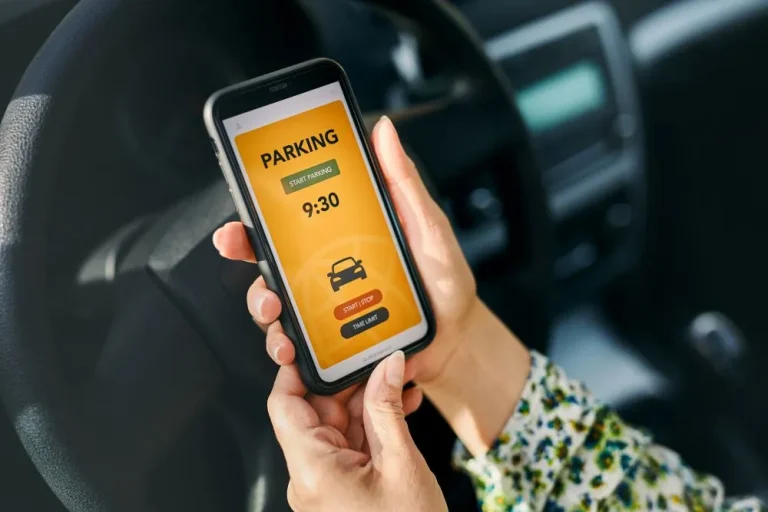Did you know that your car, on average, will spend 75% of its time parked? And, did you know that the average British driver spends four days a year looking for a parking space?
Parking apps can help you avoid wasting time by showing how many spaces are currently available in your chosen location, and even allow you to pre-book. And with over 30 digital parking apps to choose from, surely paying for your allotted parking time is a piece of cake? Well, not for every driver.
In fact, parking apps are a bit of a contentious topic. Are they a marvel of modern technology or just a route to frustration? Before we get stuck into the pros and cons of parking apps, let us know how you feel:
What are the benefits of using a parking app?
For those that love the likes of RingGo, PayByPhone and JustPark, the main benefits are all about convenience. As the modern world evolves to favour contactless and online payments, not as many people carry spare change.
Thanks to parking apps, gone are the days of rummaging around for the exact bits of change you need for a couple of hours in town. Now, you can set up an account and pay with your card via the app. And once your account is set up, you can select your vehicle, location and duration even more quickly each time you park.
Using an app also saves you from queuing at ticket machines, or searching for one working ticket machine! Instead, you can remain in your comfortable car, out of the rain, or heat, before heading out to shop. After you’ve parked, many apps also let you monitor how long you have left on your space, and extend your booking remotely, giving you added flexibility. Convenient right?
What’s the argument against parking apps?
While there are several advantages, parking apps do come with their own set of problems. There are now so many parking apps available, having to download every single one, set up an account for each, and keep these on your phone can be a hassle. Plus, it’s frustrating when the apps have a bug, can’t get a signal, or require updates right when you need to use them, using your data.
What’s more, parking apps can be especially difficult for older people to use. If you’re not an avid smartphone user, or not used to paying online with a card, parking apps can be very stressful. Age UK states “39% of over 65s don’t feel confident using a smartphone” and struggle to deal with problems such as poor network connectivity.
In fact, it could lead to mishaps such as paying for the wrong location, or even falling for copycat scammers, and earning an unjust PCN.
Some people simply prefer to use cash, or at least have the option. But some car parks are becoming app-only, which is a worry for anti-ageism campaigners. Age UK told the BBC: “We’re hearing from more and more people who are finding that their usual car parks are becoming app-only and that’s actually putting them off going out because they know they haven’t got the skills to deal with that.”
What’s the real cost?
Parking, like many other things in life, has increased in cost. As councils face rising expenses, the cost is often passed onto local residents. Many areas have seen prices rise in the pounds, as opposed to the pennies.
As parking apps become more prevalent, it’s worth considering where your money goes. A Guardian investigation in 2022 found that 10 members of Porsche automotive business were named as ‘persons of significant control’ on Companies House for PayByPhone. The app is used in more than 120 areas, including local authority sites, private businesses and the National Trust. Other parking apps are part of huge multinational businesses across Europe.
Councils using parking app services deny that they’re forfeiting revenues that could be spent on public services – instead that they simply don’t have capacity to operate their own app-based parking services. Leeds city council told the Guardian that parking fees go to the local authority, while RingGo picks up a small transaction fee, which is not paid by the customer.
But could it be a Catch-22? One argument is that, if a council needs to raise revenue by increasing parking costs because fewer people are shopping in town, surely that will deter residents from doing so, and compound the problem?
What’s the verdict?
Ultimately, the best solution is to have options for both digital parking and traditional ticket machines that accept cash and card. That way, it’s fairer across the board, even if the parking increases themselves can feel less than fair at times.
The conversation around pricey parking payments also opens up wider conversations about how we can better support businesses in our community and keep local high streets thriving – something we’re passionate about at Howden. For now, if you do find yourself struggling with parking apps, or other tech troubles, take a look at our other articles.
If you are in a town centre, be sure to pop into your local branch, and if you can’t make it in, we’re available over the phone, or in-person at our high street branches. We’re here for you whenever you need us, however you need us.
Sources: BBC News, The Guardian, The AA, British Parking Association, RAC

